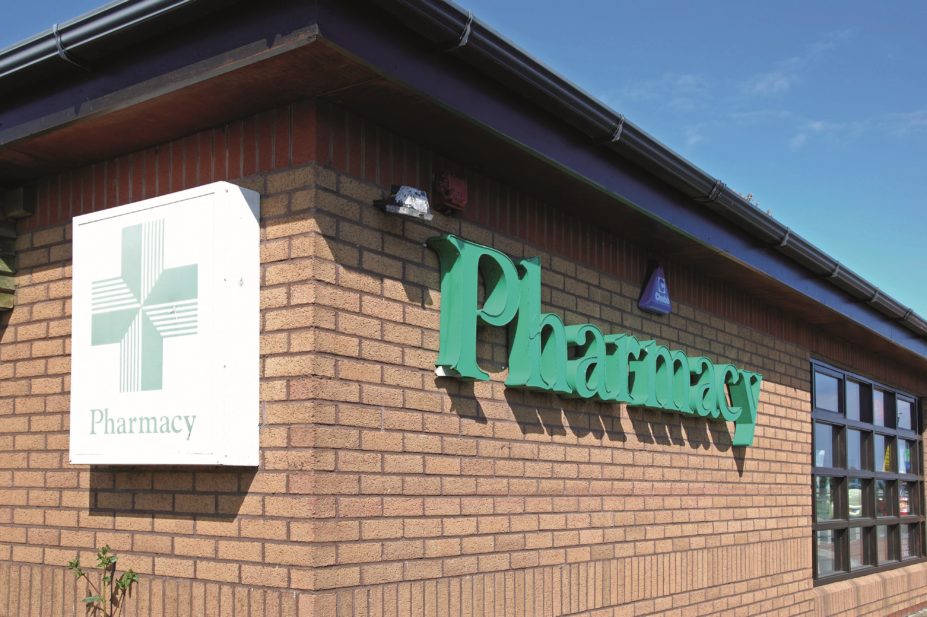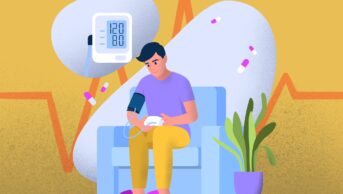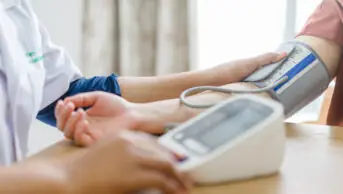
Kevin Britland / Alamy
The steps taken by individuals to support their own health and wellbeing — a concept known as self care — is becoming increasingly important in light of the heavy burden of long-term conditions, along with an aging population. But there is evidence to suggest that health professionals have not fully engaged with this approach to care. In 2005, a national survey conducted by England’s Department of Health found that more than 50% of patients who had seen a healthcare professional in the previous six months had not been encouraged to develop self care skills. This looks set to change in a corner of England’s capital city.
North East London Local Pharmaceutical Committee (LPC) is recruiting pharmacies to take part in its new SelfCare Pharmacy practice. Its aim is to provide a viable new model of pharmacy care that delivers results for patients and meets commissioners’ expectations.
Speaking at a conference hosted by North East London LPC in November 2014, pharmacy minister Earl Howe described the LPC’s SelfCare Pharmacy programme as a potential “game-changer” for community pharmacy. “People want more choice and want safe and effective services delivered as close to home as possible,” he said. “Self care and self management are ways to make best use of healthcare resources.”
The SelfCare Pharmacy practice, which has been commissioned by Newham Clinical Commissioning Group (CCG), allows pharmacists and patients to develop a care plan together. Either by self-referring, or following referral by a GP or hospital, patients with diabetes, cardiovascular disease, respiratory disease or mental health issues will be initially invited to participate in the service. Using an assessment tool, the pharmacy and the patient will jointly create a self-care plan, which may also involve onward referral of the patient to external health and social care providers. The aim will be to empower patients to change their behaviour and to improve their health and well-being in any of 12 areas (see ‘Target outcome areas’) during three follow-up sessions held over a 12-week period.
Target outcome areas
Respiratory and smoking cessation
Influenza vaccination
Daily living aids
Lifestyle and life skills
Body mass index
Glucose regulation
Blood lipids
Blood pressure
Heart rhythm
Mental health
Pain management
Medicines use reviews and new medicine service
Expressions of interest are being obtained from pharmacy contractors who want to participate, with the service due to go live in April 2015 in about 60 pharmacies in three North East London boroughs. Funding (including training monies) has been provided by Newham CCG and the local authority, with the LPC picking up the bill for development of the SelfCare Pharmacy standards. Each intervention is worth an additional £32.50 plus fees for smoking cessation, medicines use reviews, influenza vaccinations etc. “On average there is potential for earning around £250 per patient per year,” says Patel.
Off-plan funding
Armed with only enthusiasm and a business model for the initiative, North East London LPC secretary Hemant Patel has succeeded in delivering new money for local pharmacies and a new commissioned service – and not, he stresses, just another pilot that will “end, never again to see the light of day”. Up to ten participating pharmacies will provide real-time evaluation of the new care model so that implementation can be fine-tuned as experience is gained.
When asked to share the secret of unlocking new money for untried ‘off-plan’ services, Patel says: “It’s a case of keep going and keep banging away at doors. I read policies to understand what commissioners want, and use precedent to counter arguments. For example, health checks are among those services commissioned from GPs not because of an evidence base – but because someone simply thinks it is a good idea.”
The concepts of assessment and expert referral, and health coaches, are not new to the NHS, of course – but the SelfCare Pharmacy practice brings these concepts into pharmacies. “We are building new connections by relocating established roles into pharmacy and linking these roles to current pharmacy activity,” Patel says.
The patient is king
To support implementation of the SelfCare Pharmacy initiative, two North East London colleges are developing a SelfCare apprentice training programme. After qualifying, SelfCare apprentices will be able to support the pharmacy service by offering a wide range of brief interventions, including use of mobility aids and basic medicines optimisation skills, while taking the lead on the administration and management of their pharmacy’s SelfCare Pharmacy service. Apprentices may expect a salary of around £8,000-10,000 in the first year, but, according to Patel, the expectation is that they will provide a good return on that investment.
SelfCare pharmacies will have to make provisions to accommodate the time and privacy needs of the SelfCare consultation and follow-up. “This is a personalised service that will require more time,” says Patel. “There will be a lot of scrutiny of this initiative and we expect pharmacies to perform.” It is possible that, initially, up to one day a week will be needed to deliver the SelfCare Pharmacy practice.
In return for their commitment to the SelfCare Pharmacy model, Patel believes participating pharmacies will develop an identity as a ‘resource hub’ in the community, providing service users with help and advice in areas not traditionally associated with pharmacies – including debt and alcohol management – as well as developing professional credibility in primary care as an ‘expert referrer’. According to Patel, this adds value to the face-to-face pharmacy service, as well as answering commissioners’ demands for integrated service models. Some of the referrals may also generate a medicines optimisation need that contractual and other commissioned pharmacy services can address. “In the new NHS, working in isolation is not sustainable and the patient is king,” he says. “Our work is not finished until the patient feels that they are fully supported.”
At the SelfCare Pharmacy conference, local authority and CCG commissioner partners made clear that they consider this new model of care to be in line with NHS policy. Matthew Cole, director of public health at Barking and Dagenham health and well-being board, has interpreted the ‘NHS Five Year Forward View’ as a demand for action on the broader influences of health and well-being.
“We need to get serious about prevention, and to reshape care delivery, or else we will miss patients’ changing needs and this will result in unacceptable variations in outcomes,” Cole told the conference. “If organisations go into the commissioning round just seeing their own profession, then they have missed the point of the ‘NHS Five Year Forward View’. If we are going to improve primary care, it has to be a collegiate approach, and not silo thinking.”
Newham CCG lead Janaka Perera added: “The context of the SelfCare Pharmacy is integrated care. The Newham Integrated Care Programme is looking to improve outcomes through services that coordinate health and social care and which reduce duplication. The SelfCare Pharmacy model is a consolidation of what pharmacies already do, and with more structure that patients can engage with.”
Going the extra mile
Imran Wahid from Newmans Pharmacy in Plaistow is among a number of pharmacists who have been involved in the development of the SelfCare Pharmacy practice and says that the aspects of the programme that he has tested have provided a way of engaging with patients and building better clinical relationships. He believes service users have welcomed the pharmacy’s efforts to “do that extra bit”, particularly with more challenging queries.
No one, though, is under any illusion that delivering the service is going to be a quick-win. Wahid accepts that there are, potentially, significant time and resource implications for participating pharmacies. “This is not going to be a 5–10 minute consultation with some patients.” But he says, his pharmacy is committed to the programme and that any workload capacity problems will be addressed and resolved – for example, by allocating specific time/days for SelfCare Pharmacy consultations. “For me,” says Wahid, “this is a worthwhile investment.”


